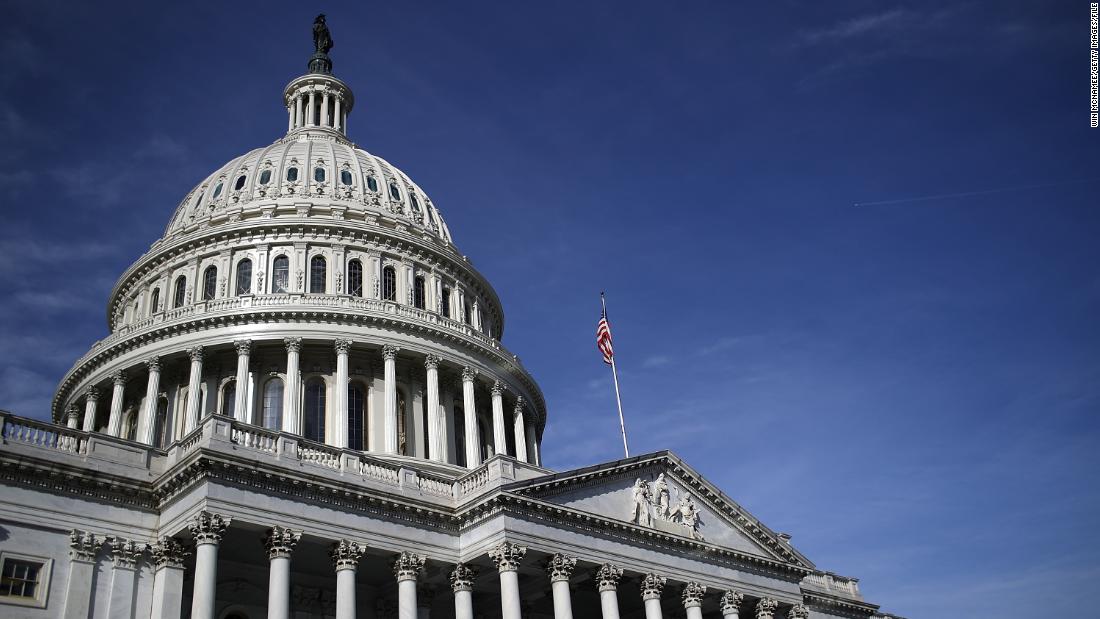Congress passes key step to allow Democrats to pass Covid-19 relief without threat of GOP filibuster
The Senate handed the price range decision early Friday morning 51-50 on a celebration line vote after Vice President Kamala Harris confirmed up on the Capitol to break the tie. The House handed the decision later within the day Friday. The House had already handed the price range measure earlier within the week, however as a result of it was amended within the Senate it wanted to return to the House for a remaining vote.
Those amendments largely function a approach for every occasion to pressure the opposite aspect on the document about controversial points, and most of the GOP amendments have been defeated.
But the method additionally highlighted some bipartisan consensus. One of the extra vital amendments got here from a bipartisan group of senators, led by Democratic Sen. Joe Manchin of West Virginia and Republican Sen. Susan Collins of Maine, that may stop “upper income taxpayers” from being eligible to obtain $1,400 Covid relief checks. While the modification was adopted 99-1, it’s not binding and doesn’t imply that the eligibility necessities shall be modified within the remaining Covid relief invoice. But it expresses broad consensus to make the adjustments.
On one carefully watched subject, Republican Sen. Joni Ernst of Iowa provided an modification to stop a hike within the minimal wage to $15 an hour throughout a pandemic. Democrats need to embrace a $15 minimal wage within the Covid relief invoice, however her measure may have been sophisticated for centrist members — like Manchin, who has a unique place than most of his caucus and helps a extra modest improve within the minimal wage.
But earlier than a roll name vote was referred to as, Sen. Bernie Sanders, the Vermont Independent who’s the chair of the Budget Committee and a champion of the $15 minimal wage, intervened and mentioned his proposal would really make the leap to $15 over 5 years, not immediately as Ernst had formulated in her modification. With that, her modification was shortly adopted by unanimous consent.
An modification by Republican Sen. Tom Cotton of Arkansas in opposition to increasing the Supreme Court, the so-called apply of courtroom packing that’s advocated by some progressives to offset the conservative majority of the courtroom, was defeated on a 50-50 vote.
What occurs now?
The price range decision that handed will not be the Covid relief invoice. It merely units the stage for Democrats to have the ability to use a course of referred to as “budget reconciliation” to pass the relief invoice on a party-line vote, presumably in late February or March, after the impeachment trial of former President Donald Trump is full within the Senate.
The House already handed the price range measure earlier within the week. But as a result of it was amended within the Senate, the House had to revote on it Friday.
House Speaker Nancy Pelosi mentioned Friday that subsequent week, they are going to start engaged on the specifics of the invoice, and predicted that the House will ship a invoice to the Senate “hopefully in a two week period of time,” in order that “this will be done long before the due date” of the expiration of unemployment insurance coverage in March.
A Biden aide informed CNN Friday the Senate’s passage of the decision is a “positive step forward” and that the White House is “looking forward to continued progress to getting assistance to the American people.”
White House press secretary Jen Psaki reiterated throughout a briefing this week there are particular “bottom lines” that Biden needs to be within the subsequent spherical of Covid-19 relief, together with direct funds reaching extra Americans than what the Republican proposal would come with.
“His view is that at this point in our country, when 1-in-7 American families don’t have enough food to eat, we need to make sure people get the relief they need and are not left behind,” Psaki mentioned, including that the administration views the chance “is not going too big, it is going too small.”
Reconciliation has been used many occasions by each events to pass controversial laws over the objections of the minority occasion, together with then-President Barack Obama’s Affordable Care Act in 2010 and Trump’s sweeping tax cuts in 2017.
Republicans are sad Democrats are resorting to the aggressive tactic, although, arguing it can set a partisan tone for the remainder of Biden’s presidency and that he isn’t working because the political unifier he pledged to be.
“We remain committed to working in a bipartisan fashion and hope that you will take into account our views as the legislative process moves forward,” the group, led by Maine Sen. Susan Collins, mentioned.
This story and headline have been up to date with extra developments Friday.
CNN’s Daniella Diaz, Annie Grayer, Lauren Fox, Phil Mattingly, Jeremy Diamond and Morgan Rimmer contributed to this report.




